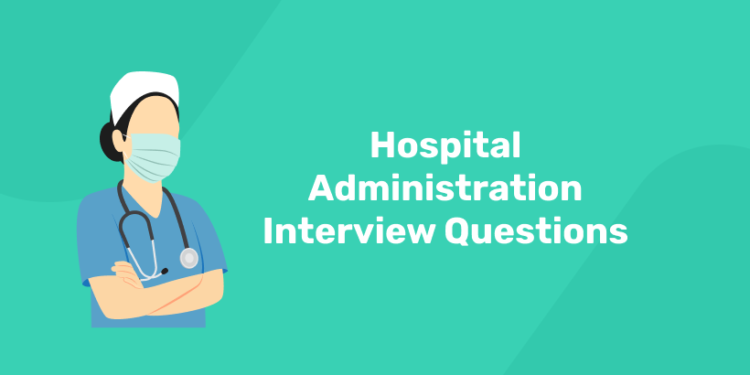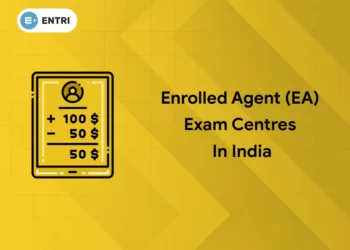Table of Contents
Key Takeaways:
- Hospital administrators manage complex healthcare operations to deliver quality patient care.
- Interviewers focus on leadership, budget management, compliance, technology use, and crisis response skills.
- Data analytics and adaptive communication are increasingly crucial.
- Workforce motivation and interdepartmental coordination enhance hospital efficiency.
- Industry growth in India offers promising salary and advancement opportunities.
Introduction: The Human Side of Hospital Administration
Hospital administration is the backbone of healthcare delivery, ensuring that hospitals function smoothly to provide compassionate and effective patient care. This role requires a blend of leadership, organization, and adaptability to manage complex staff, regulatory, and technological challenges. Whether you’re entering this dynamic field or aiming for leadership, preparing well for interviews by understanding common questions and delivering clear, thoughtful answers will open doors to a rewarding career.
In 2025, hospital administrators are at the forefront of integrating innovations like telemedicine and AI-driven data analytics while navigating stringent compliance and workforce challenges. This guide covers 20 critical interview questions with answer-focused responses, essential preparation tips, career insights, and a spotlight on Entri’s Hospital Administration Course designed to boost your job-readiness and confidence.
Hospital Administration Interview Questions and Expert Answers
1: What is the primary role of a hospital administrator?
1. Tell us about yourself and your background in healthcare administration.
Answer:
I hold a Master’s degree in Hospital Administration and have over six years of experience managing operations in both public and private healthcare institutions. My work has focused on improving patient safety, optimizing resource allocation, and leading cross-functional teams. I have also implemented technology-driven solutions like digital patient records and data dashboards to increase operational efficiency while ensuring compliance with healthcare standards. This blend of hands-on management and tech adoption has equipped me well for complex hospital administration roles.
Secure Your Future in Hospital Administration – Enroll Now!
2. What inspired you to pursue a career in hospital administration?
Answer:
My passion for improving healthcare delivery and my knack for organizational leadership inspired me to pursue this career. I am fascinated by how hospital administrators connect clinical services with business operations to enhance patient care quality and operational efficiency. Being able to lead teams and influence positive outcomes in healthcare motivates me daily.
3. How do you define hospital administration?
Answer:
Hospital administration involves managing human, financial, and technological resources within a hospital to provide seamless, high-quality patient care. This includes overseeing daily operations, ensuring regulatory compliance, coordinating among departments, and leading strategic initiatives to improve healthcare delivery outcomes.
4. What are the key responsibilities of a hospital administrator?
Answer:
A hospital administrator manages staff coordination, budget planning, compliance with healthcare laws, quality assurance, crisis management, and vendor relationships. They ensure smooth operations while prioritizing patient safety and satisfaction, all within budgetary constraints and evolving regulatory frameworks.
5. What leadership qualities are essential for this role, and how do you demonstrate them?
Answer:
Key qualities include effective communication, ethical decision-making, adaptability, conflict resolution, and calmness under pressure. I demonstrate these by fostering transparent communication channels, making data-informed decisions aligned with ethical standards, and leading by example during crises to maintain morale and operational continuity.
🌟 Build Your Resume Now
🌟 Start Your Interview Preparation
6. How do you handle interdepartmental communication challenges?
Answer:
I establish regular interdepartmental meetings and appoint communication coordinators in each department to streamline information flow. I also leverage digital platforms to provide real-time updates and ensure that departments receive timely and accurate information, which minimizes misunderstandings and operational delays.
7. Can you describe your experience with budgeting and financial management?
Answer:
I have managed hospital budgets by prioritizing expenditures based on critical care needs, renegotiating vendor contracts for cost savings, and implementing energy-efficient initiatives. For example, during a 15% budget cut, I reassessed departmental needs, maintained funding for key services, and increased outpatient throughput by 10% through strategic resource reallocation.
8. What strategies do you use to improve staff morale and reduce turnover?
Answer:
I use recognition programs such as “Employee of the Month,” foster open communication forums, provide professional development opportunities, and solicit regular feedback to understand staff concerns. These efforts promote engagement, reduce burnout, and have consistently lowered turnover rates in my previous roles.
9. How do you stay updated with changes in healthcare regulations?
Answer:
I subscribe to healthcare regulatory newsletters, attend professional conferences, participate in webinars, and maintain membership in professional healthcare organizations. This ensures compliance with evolving standards such as NABH guidelines and HIPAA regulations and helps me implement best practices proactively.
10. How do you use technology to improve hospital operations?
Answer:
I lead the implementation of EHR systems like Epic and telemedicine solutions to streamline patient data management and remote consultations. I also use analytics dashboards to identify bottlenecks and optimize patient flow, which has reduced discharge times by up to 20% in past roles.
11. How would you manage a sudden surge in patients, such as during a public health emergency?
Answer:
I activate the hospital’s emergency preparedness plan, reallocate staff, create temporary isolation wards, and coordinate with local health authorities. For example, during a flu outbreak, I swiftly increased staffing and reorganized patient admission flow to maintain quality care under increased demand.
12. How do you ensure compliance with patient safety and quality care standards?
Answer:
Through regular staff training programs, internal audits, adherence to infection control protocols, and patient feedback mechanisms. I also ensure maintenance schedules for medical equipment are up to date and that all departments consistently meet accreditation requirements.
13. What key performance indicators (KPIs) do you monitor to evaluate hospital performance?
Answer:
KPIs include patient satisfaction scores, average length of stay, readmission rates, staff turnover rate, financial metrics like revenue cycle efficiency, and incident reporting rates. Monitoring these enables early identification of issues and drives continuous improvement.
14. Give an example of how you improved operational efficiency.
Answer:
At my previous hospital, I led a cross-functional task force to redesign patient discharge procedures, introducing a standardized checklist and improving interdepartment communication. This reduced discharge times by 30%, freeing up beds more quickly and increasing patient throughput.
15. How do you manage vendor and supplier relationships?
Answer:
I build transparent relationships through regular communication and contract reviews. I negotiate service-level agreements to ensure accountability and quality. This proactive approach has led to cost savings of up to 15% without compromising service quality.
16. How do you handle conflict among hospital staff?
Answer:
I encourage open dialogue, listen actively to all parties, mediate discussions using data and policy to guide resolutions, and foster a culture of respect and teamwork. This approach minimizes disruptions and strengthens collaboration across departments.
17. How do you implement change management in a hospital?
Answer:
By clearly communicating the rationale and benefits of changes, involving key stakeholders early, providing training, and addressing concerns empathetically. I ensure continuous feedback loops to adjust the approach and facilitate smooth transitions.
18. How do you balance financial constraints with maintaining quality patient care?
Answer:
Through rigorous cost-benefit analysis, innovation adoption, resource optimization, and ensuring essential services remain fully funded. Breaking down silos between finance and clinical teams helps maintain patient care standards while controlling costs.
19. What innovations do you see shaping hospital administration in the next 5 years?
Answer:
AI-driven predictive analytics for patient outcomes, expanded use of telemedicine, blockchain for secure patient records, and automation in billing and supply chain management will revolutionize hospital administration efficiencies and patient care personalization.
20. How would you enhance patient satisfaction at the hospital?
Answer:
I would focus on reducing wait times, training staff in patient-centered communication, soliciting and acting on patient feedback, and implementing user-friendly digital appointment and information systems. Personalized care and responsiveness are critical to a positive patient experience.
Hospital Administration Course with Assured Career Growth
Hospital Administration Course by Entri App: Master essential healthcare management skills, gain certification, and secure top roles in leading hospitals
Join Now!Tips to Prepare for Your Hospital Administration Interview
- Research the hospital’s mission, recent initiatives, and challenges.
- Use the STAR method (Situation, Task, Action, Result) to answer behavioral questions concisely.
- Highlight your leadership and crisis management experiences with specific examples.
- Demonstrate knowledge of hospital technologies and data-driven decision-making.
- Prepare to discuss compliance, cost management, and staff motivation strategies.
Hospital Administration Career Outlook in India 2025
India’s hospital administration sector is expanding rapidly due to increased healthcare access, technology adoption, and private sector growth. Entry-level annual salaries range ₹2.4 to ₹4.2 lakhs, mid-management ₹5 to ₹8 lakhs, and senior administrators can earn over ₹12 lakhs. Demand is highest in metropolitan hospitals and healthcare chains. Skill in healthcare IT systems, regulatory knowledge, and leadership are key to career growth.
Entri’s Hospital Administration Course: Empower Your Healthcare Career
Entri’s Hospital Administration Course is a comprehensive program designed to equip you with practical skills in healthcare operations, leadership, financial planning, and regulatory compliance tailored to India’s healthcare industry. Key features include:
- Placement assistance with reputed hospitals and healthcare providers.
- Certification that adds value to your resume.
- Interactive, real-world scenario-based learning modules.
- Expert-led instruction from industry professionals.
- Flexible schedule ideal for working professionals.
Join Entri’s course to gain confidence, industry-relevant skills, and a competitive edge in securing top hospital administration roles.
Hospital Administration Course with Assured Career Growth
Hospital Administration Course by Entri App: Master essential healthcare management skills, gain certification, and secure top roles in leading hospitals
Join Now!Conclusion: Take Charge of Your Healthcare Leadership Journey
A career in hospital administration offers tremendous fulfillment through impactful leadership that shapes patient care and hospital success. By preparing well for your interviews and continuously upgrading your skills, you position yourself as a capable administrator ready to tackle evolving challenges. Entri’s Hospital Administration Course provides you with the tools and support to confidently step into this vital role—enroll today and advance your journey in healthcare management.
| Also Read | |
| How to Become a Hospital Administrator | |
| Top Skills Needed for a Successful Career in Hospital Administration | |
| Career Pathways in Hospital and Healthcare Administration |
Hospital Administration Course with Assured Career Growth
Hospital Administration Course by Entri App: Master essential healthcare management skills, gain certification, and secure top roles in leading hospitals
Join Now!Frequently Asked Questions
What should I expect in a hospital administration interview?
In a hospital administration interview, you can expect questions related to leadership, financial management, problem-solving, regulatory compliance, and crisis management. Interviewers will assess your ability to lead teams, manage healthcare operations efficiently, and make critical decisions in high-pressure situations.
What are some common leadership-related questions in hospital administration interviews?
Common leadership-related questions include: “How do you manage and motivate your team?”, “Can you give an example of resolving a staff conflict?”, and “How do you ensure effective communication between departments?” These questions test your leadership style and your ability to maintain a harmonious working environment.
How do I prepare for questions about healthcare regulations in a hospital administration interview?
To prepare for regulatory compliance questions, familiarize yourself with key healthcare laws, such as HIPAA (Health Insurance Portability and Accountability Act) or Joint Commission standards. Be ready to discuss how you’ve ensured compliance in previous roles and how you stay updated on evolving healthcare regulations.
What type of financial management questions are typically asked?
Interviewers might ask questions like: “How do you manage hospital budgets?”, “Describe a time when you reduced costs without compromising patient care.”, and “How do you handle financial forecasting?” These questions evaluate your ability to manage resources and ensure the financial health of the hospital.
What are some examples of problem-solving questions in hospital administration interviews?
Problem-solving questions might include: “Can you describe a situation where you had to make a quick decision under pressure?”, “How do you handle staffing shortages?”, or “What steps would you take in a facility crisis, such as a power outage?” These questions assess your critical thinking and crisis management abilities.
How should I answer questions about managing hospital staff?
When asked about managing hospital staff, focus on your ability to communicate clearly, build strong relationships, and resolve conflicts. Mention specific strategies you use for staff development, such as cross-training, regular feedback, or performance reviews, to ensure high staff morale and productivity.
What kind of questions should I expect regarding patient care standards?
Questions about patient care standards often include: “How do you ensure high-quality patient care?”, “How do you handle patient feedback or complaints?”, and “How do you maintain a balance between efficiency and patient-centered care?” Your answers should highlight your commitment to improving patient outcomes while managing operational efficiency.
How do I handle questions about crisis management in a hospital administration interview?
For crisis management questions, prepare to discuss past experiences where you’ve handled emergencies, such as natural disasters, pandemics, or equipment failures. Focus on your ability to coordinate teams, communicate effectively, and implement contingency plans to minimize disruptions in hospital operations.
What should I say when asked about my experience with hospital accreditation?
If asked about accreditation, describe any previous involvement in preparing for audits or accreditation processes, such as Joint Commission or ISO standards. Discuss how you ensured compliance with healthcare regulations, conducted internal reviews, and worked with department heads to meet accreditation
How can Entri’s Hospital Administration Course help me prepare for interviews?
Entri’s Hospital Administration Course provides comprehensive training in leadership, financial management, regulatory compliance, and crisis handling, equipping you with the skills needed for hospital administration roles. It’s an excellent way to gain the expertise required to excel in interviews and on the job.










